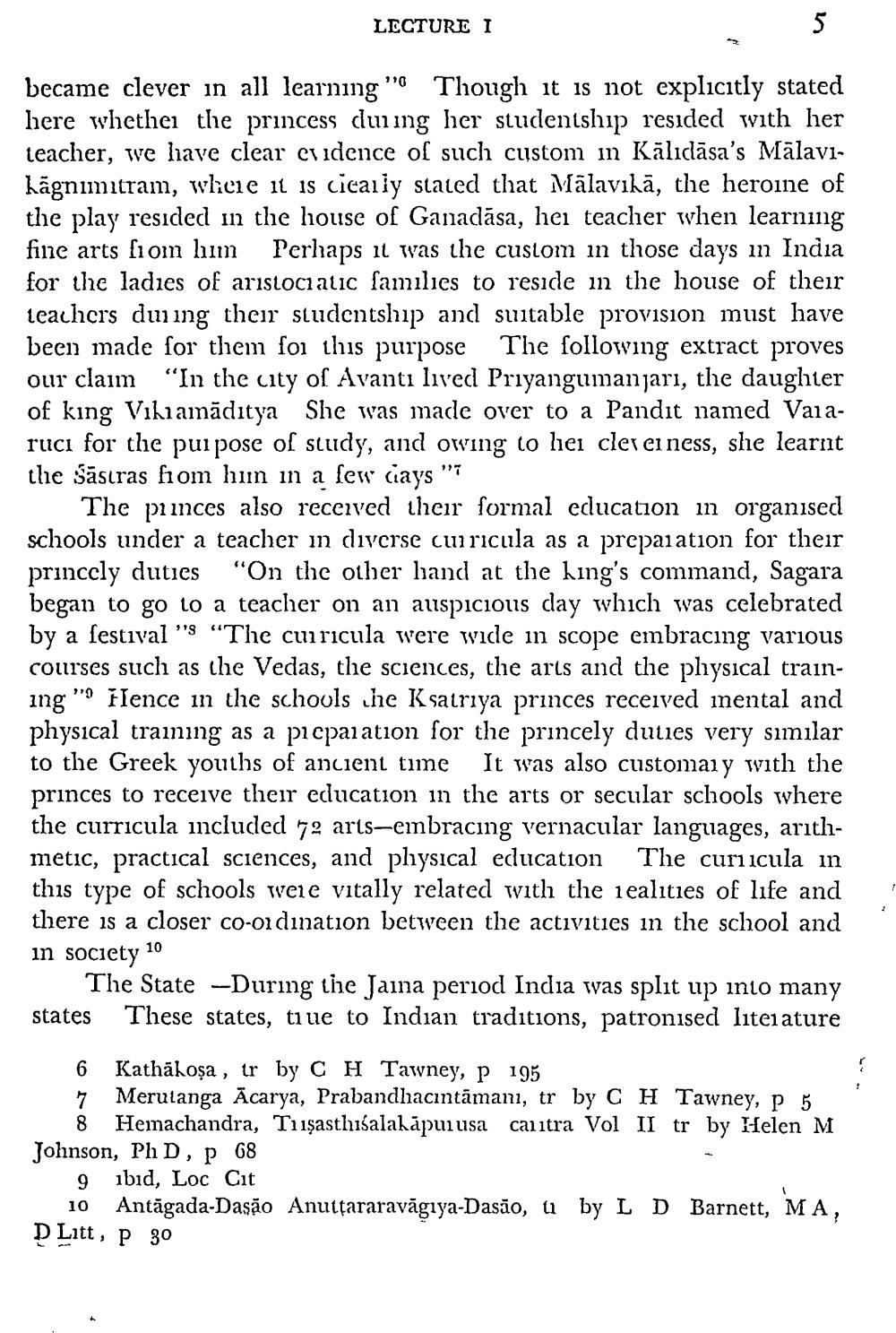________________
LECTURE I
became clever in all learning" Though it is not explicitly stated here whether the princess during her studentship resided with her teacher, we liave clear evidence of such custom in Kālıdāsa's Mālavihāgnimitram, wlicie it is cically stated that Mālavikā, the heroine of the play resided in the house of Ganadāsa, hei teacher when learning fine arts from him Perhaps it was the custom in those days in India for the ladies of aristocratic families to reside in the house of their leachers during their studentship and suitable provision must have been made for them foi this purpose The following extract proves our claim “In the city of Avantı lived Priyangumanjari, the daughter of king Vikramaditya She was made over to a Pandit named Vaiaruci for the purpose of study, and owing to liei clerei ness, she learnt the Sāsıras from hun in a few ciays"
The princes also received their formal education in organised schools under a teacher in diverse curricula as a preparation for their princely duties "On the other hand at the hing's command, Sagara began to go to a teacher on an auspicious day which was celebrated by a festival "'“The curricula were wide in scope embracing various courses such as the Vedas, the sciences, the arts and the physical training” ilence in the schools ne Ksatriya princes received inental and physical training as a picpaiation for the princely duties very similar to the Greek youths of ancient time It was also customary with the princes to receive their education in the arts or secular schools where the curricula included 72 arts-embracing vernacular languages, arithmetic, practical sciences, and physical education The curricula in this type of schools were vitally related with the iealities of life and there is a closer co-ordination between the activities in the school and in society 10
The State -During the Jaina period India was split up into many states These states, tiue to Indian traditions, patronised liteiature
6 Kathāloșa, tr by C H Tawney, p 195 7 Merutanga Ācarya, Prabandhacıntāmani, tr by C H Tawney, p 5
8 Hemachandra, Tişasthisalahāpui usa cantra Vol II tr by Helen M Johnson, PhD, P 68
9 ibid, Loc Cit 10 Antāgada-Dasão Anuttararavāgiya-Dasão, u by L D Barnett, MA, Litt, P 30




